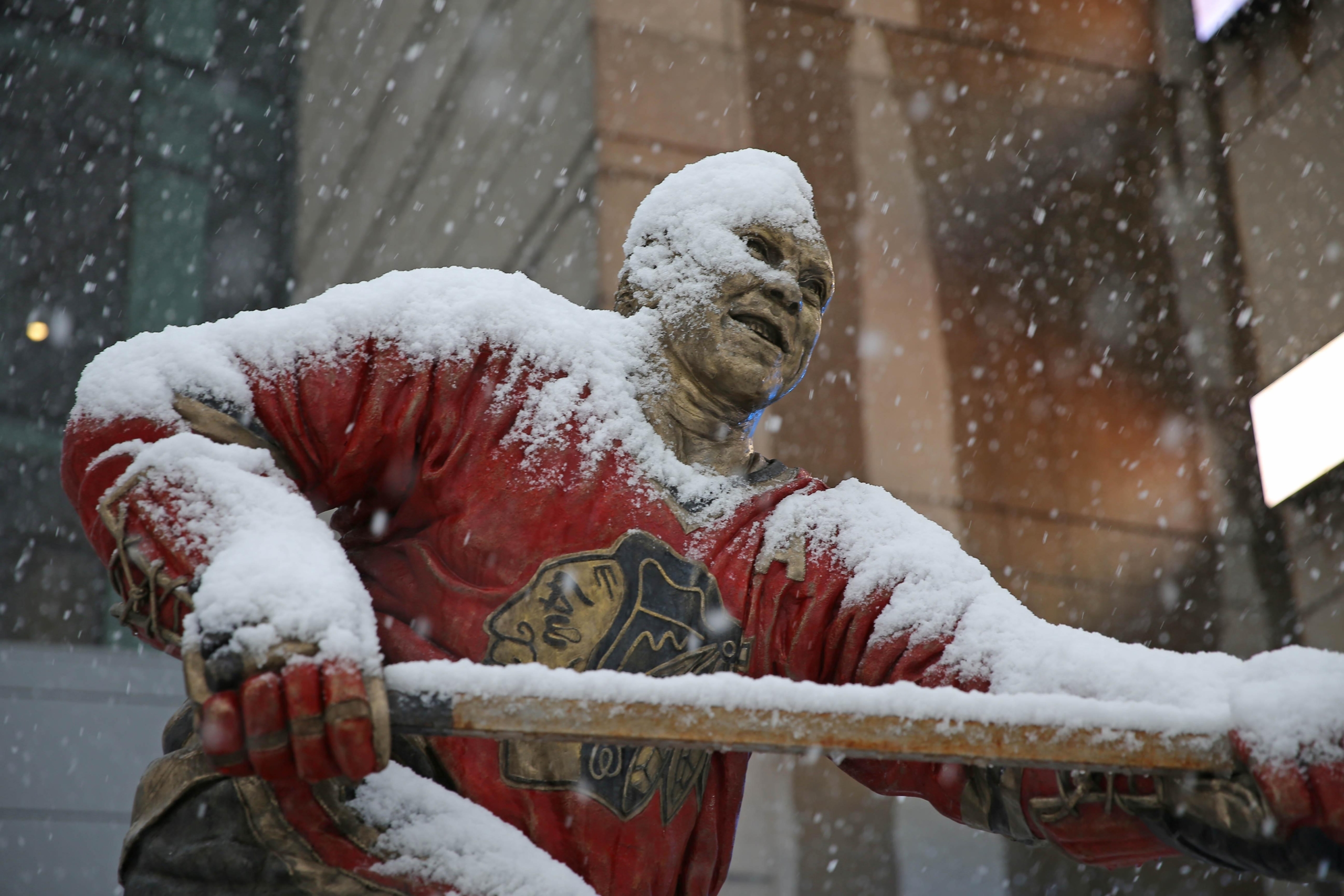The NHL lost one of the game’s greatest players when former Chicago Blackhawks legend Bobby Hull died Monday at the age of 84. The Hockey Hall of Famer was a true pioneer of the game, breaking scoring records, winning the Stanley Cup and forcing the league to alter the rule book to protect opposing players. Ultimately, there will only ever be one “Golden Jet,” and the game lost a true icon.
Before the 1960s, the NHL had several bona fide stars like Newsy Lalonde, Eddie Shore, Maurice Richard and Gordie Howe, each carving out their legacies, mesmerizing fans with each new record.
Eventually, an influx of young superstars like Hull and his teammate Stan Mikita, who rewrote the record books themselves, allowed the league to grow beyond the Original Six cities.
Bobby Hull ushers in a decade of success after debuting in 1957
After 1942, the league only had six teams, an era that lasted 25 years before expansion in 1967. Unfortunately, the Blackhawks were one of the worse franchises during this era, qualifying for the playoffs just three times. Moreover, they finished at the bottom of the standings and needed a savior to turn their fortunes around. Luckily, the team ushered in a new era of success when Hull joined the team in 1957.
Despite not winning the Calder Trophy (Rookie of the Year), he finished second with a respectable 47-point season. Ultimately, his first campaign was only the beginning since he’d score 39 goals in year three to lead the league at just 21 years old. By the time the Blackhawks were ready to claim the 1961 Stanley Cup championship, Bobby Hull had scored 50 goals to tie the record held by only a few players in past generations.
After Mikita introduced the world to the “banana curve,” Hull used the game’s first stick enhancement to his advantage. Although no one used radar guns on slap shots back then, many believe Hull could routinely fire the puck over 100 miles-per-hour. Ultimately, the league had to alter the amount of curve allowed on a stick to protect players because the bulk of the league’s goalies still did not wear facial protection during this time.
By the decade’s end, he had won three scoring titles and two league MVP awards. Furthermore, the Blackhawks qualified for the playoffs in his first ten seasons, ultimately losing in the Stanley Cup Final four times during his tenure in Chicago. However, despite all the individual and team success, Hull craved more.
Hull joined the Winnipeg Jets and World Hockey Association in 1972
At the time, Hull sat on top of the hockey world, setting the single-season goal record and breaking it a few seasons later. Moreover, although he wasn’t constantly hoisting the Stanley Cup, he was one of the game’s premier players. Unable to land a contract worthy of his status, Bobby Hull departed in one of hockey history’s most shocking moments, defecting to the newly established World Hockey Association (WHA).
As a member of the Winnipeg Jets, Bobby Hull set career highs in goals (77) and points (142), bringing respectability to the league that rivaled the NHL. Eventually, the game’s greatest player, Howe, came out of retirement to play with Houston in the WHA, meaning that players who still had gas in the tank could still play professional hockey.
Ultimately, Hull earned a deal with the Jets worth over $2 million, a figure unheard of for NHL players then. Once again, he was a trailblazer who fought for his worth and achieved it. Whether the megadeal with the Jets put pressure on the NHL owners to pay up is undetermined. Nevertheless, Hull raised awareness regarding players’ compensation.
After winning two championships in the WHA, Hull and the Jets eventually came to the NHL in the merger of 1979. Although he was not as productive, he returned to the league where he made his name to retire.
Bobby Hull’s legacy in professional hockey is genuinely one of a kind
Today, Hull ranks 55th all-time with 1,170 points and remains one of only 20 players to score 600 goals. Upon retirement in 1980, he was among the top 10 in both categories, eventually losing a spot on each list when his son Brett Hull passed him in both goals (741) and points (1,391).
Nevertheless, Hull earned an Officer of the Order of Canada in 1978 and entered the Hockey Hall of Fame in 1983. Furthermore, both the Blackhawks and Jets retired his jersey, and he served as a team ambassador in Chicago until 2021-22 when he retired. Throughout his illustrious career, he earned several awards and accolades, including the Blackhawks’ all-time leading goal record with 604, a mark unchallenged since 1972.
Today the hockey community lost an outstanding player who dominated the game at a moment in history that we may never see again. Although there is more to talk about regarding his personal life and how he conducted himself, we are here to discuss the impact of Hull’s playing career in professional hockey.
Ultimately, the NHL may not be the same today without his charisma and abilities in the 1960s. Overall, a gifted player like Bobby Hull only comes around once in a lifetime.

